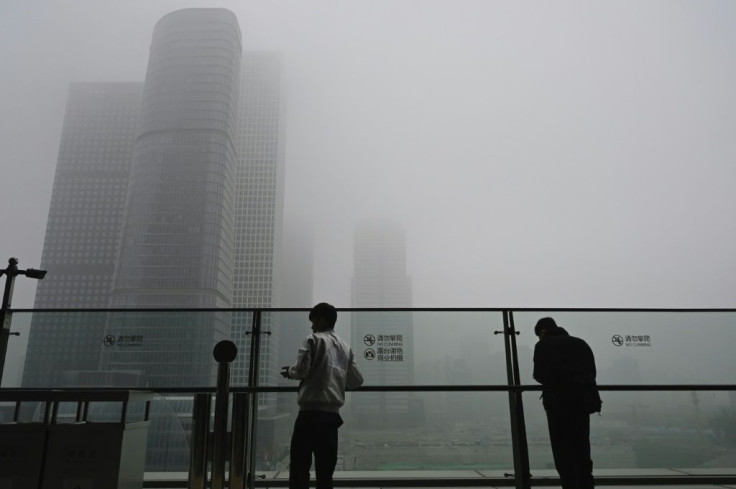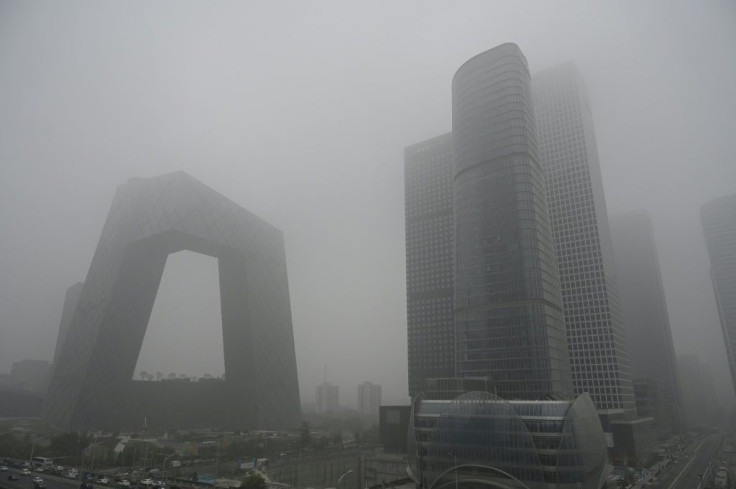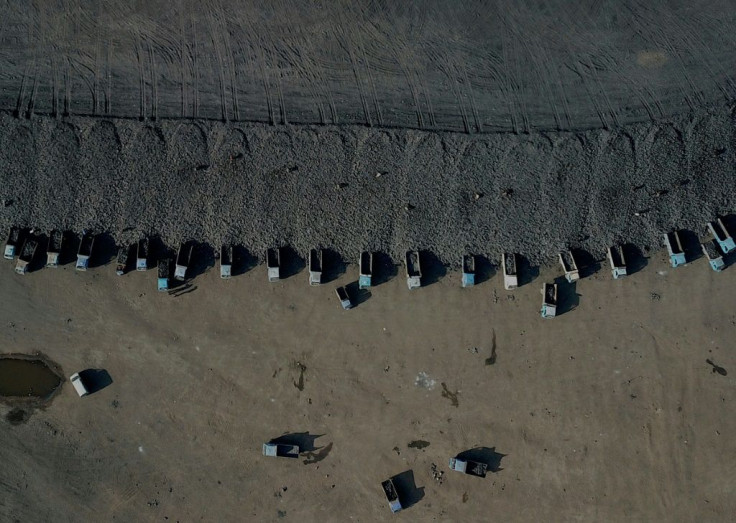Beijing Shuts Roads, Playgrounds Amid Heavy Smog After Coal Spike
Highways and school playgrounds in Beijing were closed Friday due to heavy pollution, as China ramps up coal production and faces scrutiny of its environmental record at make-or-break international climate talks.
World leaders have gathered in Scotland this week for COP26 negotiations billed as one of the last chances to avert catastrophic climate change, though Chinese President Xi Jinping made a written address instead of attending in person.
China -- the world's largest emitter of the greenhouse gases responsible for climate change -- has ramped up coal output after supply chains in recent months were roiled by an energy crunch owing to strict emissions targets and record prices for the fossil fuel.

A thick haze of smog blanketed swathes of northern China on Friday, with visibility in some areas reduced to less than 200 metres (yards), according to the country's weather forecaster.
Schools in the capital -- which will host the Winter Olympics in February -- were ordered to stop physical education classes and outdoor activities.
Stretches of highways to major cities including Shanghai, Tianjin and Harbin were closed due to poor visibility.
Pollutants detected Friday by a monitoring station at the US embassy in Beijing reached levels defined as "very unhealthy" for the general population.

Levels of small particulate matter, or PM 2.5, which penetrate deep into the lungs and cause respiratory illnesses, hovered around 230 -- far above the WHO recommended limit of 15.
Authorities in Beijing blamed the pollution on a combination of "unfavourable weather conditions and regional pollution spread" and said the smog was likely to persist until at least Saturday evening.
But the "root cause of smog in north China is fossil fuel burning," said Greenpeace East Asia climate and energy manager Danqing Li.
China generates about 60 percent of its energy from burning coal.

China has increased coal output to ease an energy shortage that had forced factories to close in recent months.
Average daily coal production in the middle of October was 1.1 million tonnes higher than the end of September, according to a Sunday statement by the country's top economic planning body.
National coal stores hit 112 million tonnes earlier this week, a "normal level for the average year", the agency said Thursday.
Like many places in rapidly industrialising China, Beijing is no stranger to air pollution -- though severe smog episodes have become less frequent in recent years as authorities have increasingly prioritised environmental protection.
"The air in the last few years has been excellent, with very little smoggy weather," Beijing resident Song Ximeng told AFP.
"This only happens very rarely."
In his COP26 statement, Xi urged developed countries to provide more climate change support to developing nations, but stopped short of making any significant new commitments from China.
Beijing has already pledged to bring emissions of planet-heating carbon dioxide to a peak by 2030 and reduce them to net zero by 2060.
China hit back Wednesday at criticism by Joe Biden, saying "actions speak louder than words" after the US president accused Beijing of not showing leadership to combat climate change.
© Copyright AFP 2024. All rights reserved.











